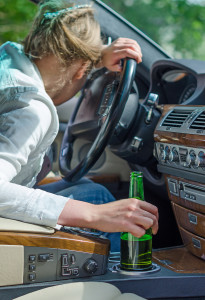 While it’s true that New York City has a solid public transit system in place, the fact is that millions of people still rely on their personal vehicles to get them to their destinations each day. It’s easy to make a simple mistake and drive when you’ve had a drink, and DWI charges are very common throughout the city. Another thing that is common is a major myth related to the DWI, and taking a closer look at this myth is important for anyone facing these charges.
While it’s true that New York City has a solid public transit system in place, the fact is that millions of people still rely on their personal vehicles to get them to their destinations each day. It’s easy to make a simple mistake and drive when you’ve had a drink, and DWI charges are very common throughout the city. Another thing that is common is a major myth related to the DWI, and taking a closer look at this myth is important for anyone facing these charges.
That myth is simply that DWI charges are impossible to defend against – that you have no option other than to plead guilty or go to trial and be proven guilty and face even harsher penalties.
The truth is that there are other possibilities out there. It’s true that defending a DWI charge is difficult. Thanks to the fact that things like field sobriety tests, breathalyzer evidence, and police officer testimony are all used as evidence in these cases, the chances of dodging a conviction are pretty slim. But it’s certainly not impossible, and every year people are successfully defended against these charges.
There are two options – proving innocence or having the charges dropped outright. Of these, having charges dropped is the more common. The key to either is having a good DWI lawyer on your side and letting them identify potential issues with your arrest or with the charges themselves. A few potential factors that can lead to avoiding a conviction include:
- Improper actions of the police. Whether it’s failure to read you your rights, stopping you for no reason, acting outside their jurisdiction, or some other issue, if the police don’t follow regulations and laws exactly it could lead to charges being dropped completely.
- Poor calibration of equipment. Many people don’t realize that breathalyzer equipment must be calibrated according to very strict guidelines. If it isn’t, it can’t be used as evidence against you in a criminal case.
- Improper charges. Rarer, but still possible is the fact that you’re facing charges that aren’t really appropriate for your situation. For instance, if you refused the breathalyzer but are still facing a DWI charge, there could be an issue. You might still be charged with refusing to take the test, but the DWI charge might not be applicable.
Essentially, you need to talk to an attorney about your situation to find out where you stand and what options you should take. You have a lot of different potential outcomes, and it’s important to remember that automatically pleading guilty isn’t always the best option during a DWI charge.

